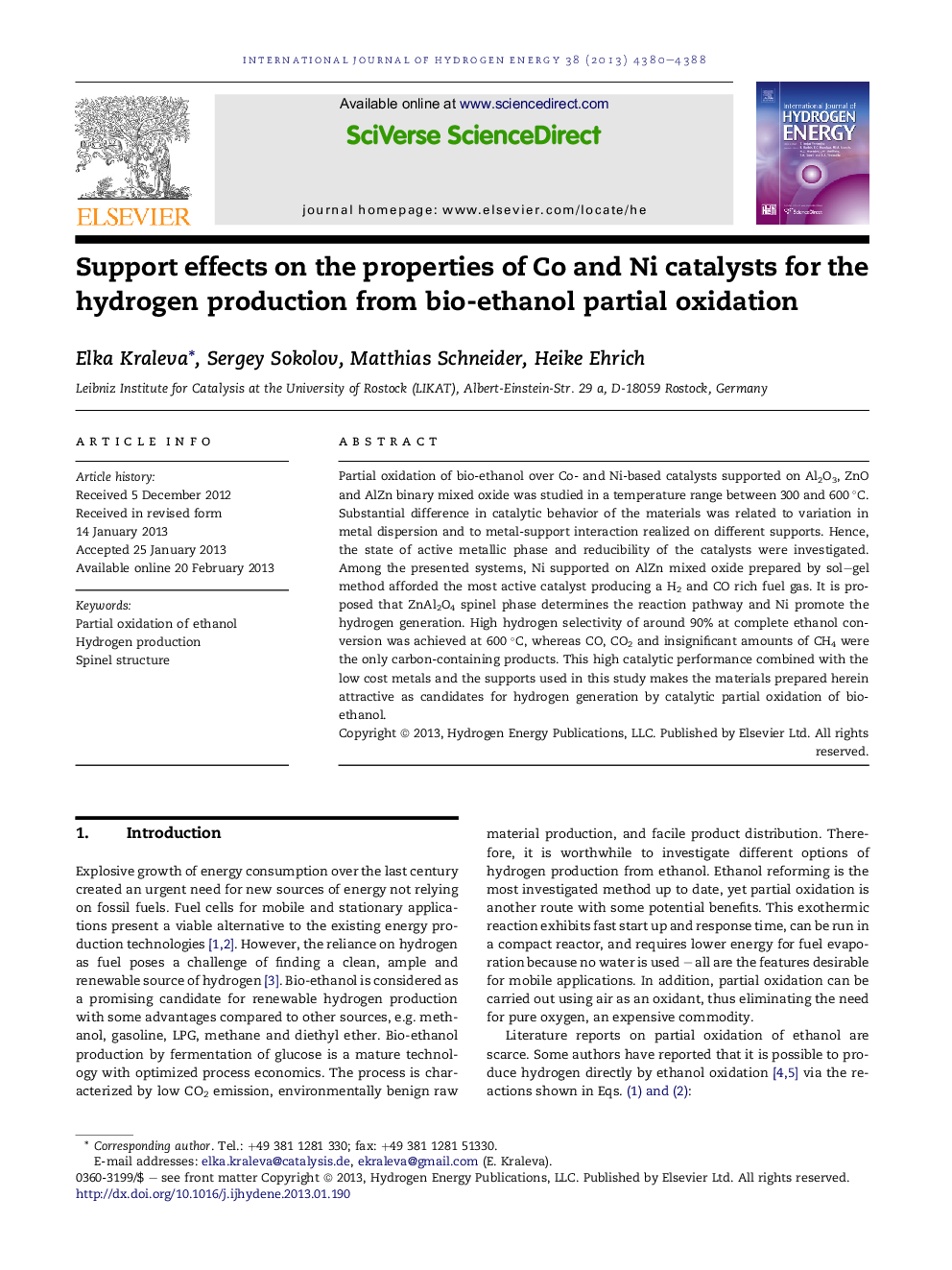| Article ID | Journal | Published Year | Pages | File Type |
|---|---|---|---|---|
| 1278131 | International Journal of Hydrogen Energy | 2013 | 9 Pages |
Partial oxidation of bio-ethanol over Co- and Ni-based catalysts supported on Al2O3, ZnO and AlZn binary mixed oxide was studied in a temperature range between 300 and 600 °C. Substantial difference in catalytic behavior of the materials was related to variation in metal dispersion and to metal-support interaction realized on different supports. Hence, the state of active metallic phase and reducibility of the catalysts were investigated. Among the presented systems, Ni supported on AlZn mixed oxide prepared by sol–gel method afforded the most active catalyst producing a H2 and CO rich fuel gas. It is proposed that ZnAl2O4 spinel phase determines the reaction pathway and Ni promote the hydrogen generation. High hydrogen selectivity of around 90% at complete ethanol conversion was achieved at 600 °C, whereas CO, CO2 and insignificant amounts of CH4 were the only carbon-containing products. This high catalytic performance combined with the low cost metals and the supports used in this study makes the materials prepared herein attractive as candidates for hydrogen generation by catalytic partial oxidation of bio-ethanol.
► Effects of supports on H2 production from POE was investigated. ► The amphoteric character of AlZn mixed oxide determines the reaction pathway. ► Low cost metals (Co and Ni) promoted the hydrogen generation. ► Ni supported on AlZn mixed oxide was the most active catalyst producing a H2 and CO rich fuel gas. ► The H2 and CO rich fuel gas can be used as fuel in portable solid oxide fuel cell applications.
